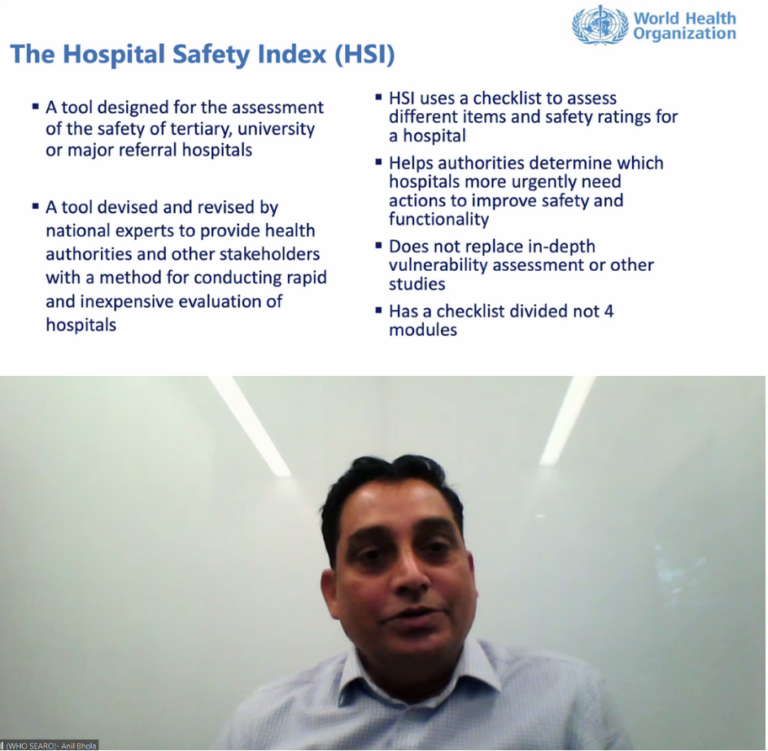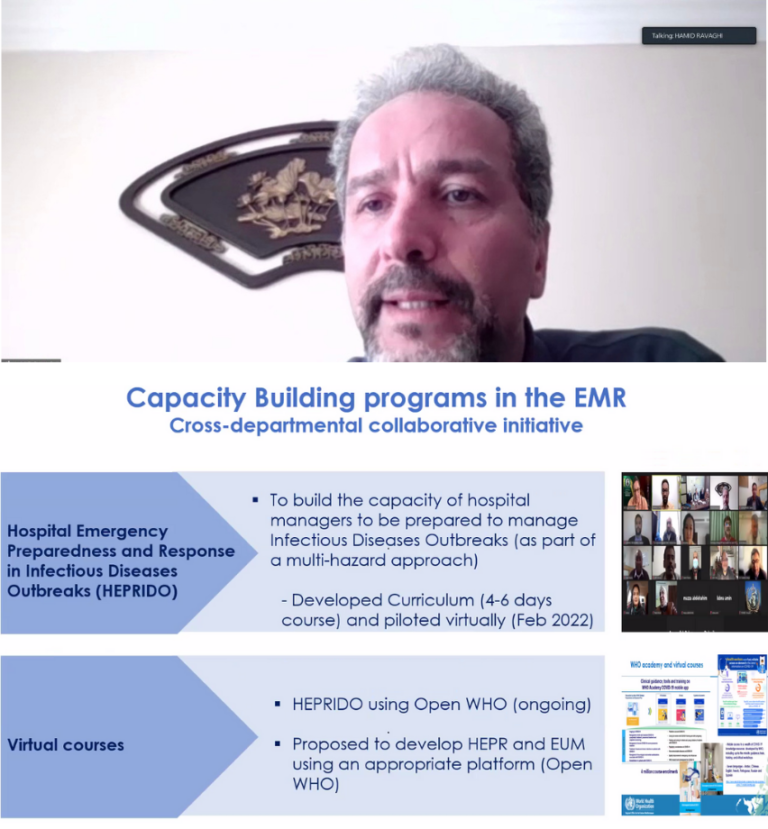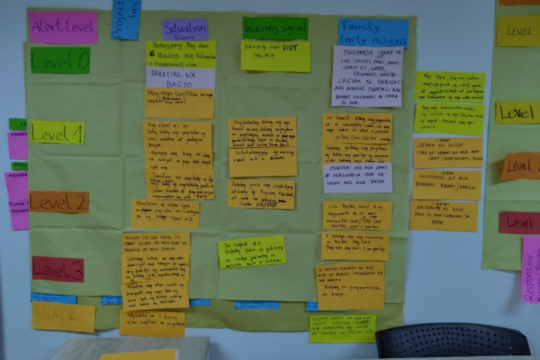Asian Disaster Preparedness Center (ADPC), through its Program for Enhancement of Emergency Response (PEER), organized the Second Regional Technical Working Group (RTWG) Meeting on 30 March 2022, with representatives from the World Health Organization South-East Asia Region (WHO-SEARO), World Health Organization Eastern Mediterranean Regional Office (WHO-EMRO), and RTWG members from Bangladesh, India, Pakistan, Nepal, and Sri Lanka to strategize on ways to develop safer hospitals in South Asia.
The RTWG has been formulated to promote the safety of hospitals against disasters through implementing safety plans, engaging the private sector, and integrating HOPE courses in countries’ response systems. The group is also formed to discuss the minimum training standards and benchmarks to support emergency response training in the countries. The first RTWG discussion defined the roles and responsibilities of RTWG and dwelled on sharing experiences and best practices of HOPE online courses in the Philippines, Nepal, and Pakistan. Taking this forward, the second meeting deep-dived into co-developing the self-paced HOPE e-learning course and Hospital Emergency and Disaster Risk Management Toolkit in the national context.
The discussion started with brainstorming on ways to adapt WHO guidelines on hospital safety. Dr. Anil Bhola, Consultant in WHO SEARO emphasized the use of the Hospital Safety Index (HSI) tools laid out under the WHO Safe Hospital Framework. “HSI elements have been elaborated in detail to ensure the safety and continuity of services in disaster situations. These elements have to be adopted in the national context”, he added while explaining WHO guidelines linkages to Sendai Framework for Disaster Risk Reduction (SFDRR).
SFDRR 2015-30 is a global blueprint to prevent future and reduce existing disaster risks. It outlines seven clear targets and four priorities for action to reduce the risk of disasters.

Regional Advisor – Hospital Care and Management from WHO EMRO, Dr. Hamid Ravaghi brought in his expertise from the Eastern Mediterranean Region and highlighted various capacity-building programs in the region. He reiterated the importance of including infectious disease outbreaks in hospital preparedness programs and presented the best practices of Hospital Emergency Preparedness and Response in Infectious Diseases Outbreaks (HEPRIDO). “The HEPRIDO course will be soon available publicly on the Open WHO Platform to manage infectious diseases outbreaks as part of a multi-hazards approach”, he added.

Taking the discussion forward, Technical Lead and Chief of Party-PEER in ADPC, Mr. John Abo presented a snapshot and the development process of the HOPE e-learning course. He explained how the online version of the course can help PEER reach out to more doctors and added, “e-learning solves the issue of unavailability of doctors to take the physical course but it is not a replacement, rather an added value which can complement face-to-face HOPE training.”

He also presented the concept of the Hospital Disaster Risk Management (DRM) Toolkit which will enable hospitals to identify hazards and vulnerabilities. The toolkit will also provide an emergency response checklist that will guide on the basic tasks needed to start an emergency response operation in the event of a disaster.
The members deliberated on priority activities for the upcoming months, frequency of meetings and actions to be taken up on adopting and updating WHO guidelines, Hospital DRM Toolkit, and HOPE e-learning curriculum in the local context.


